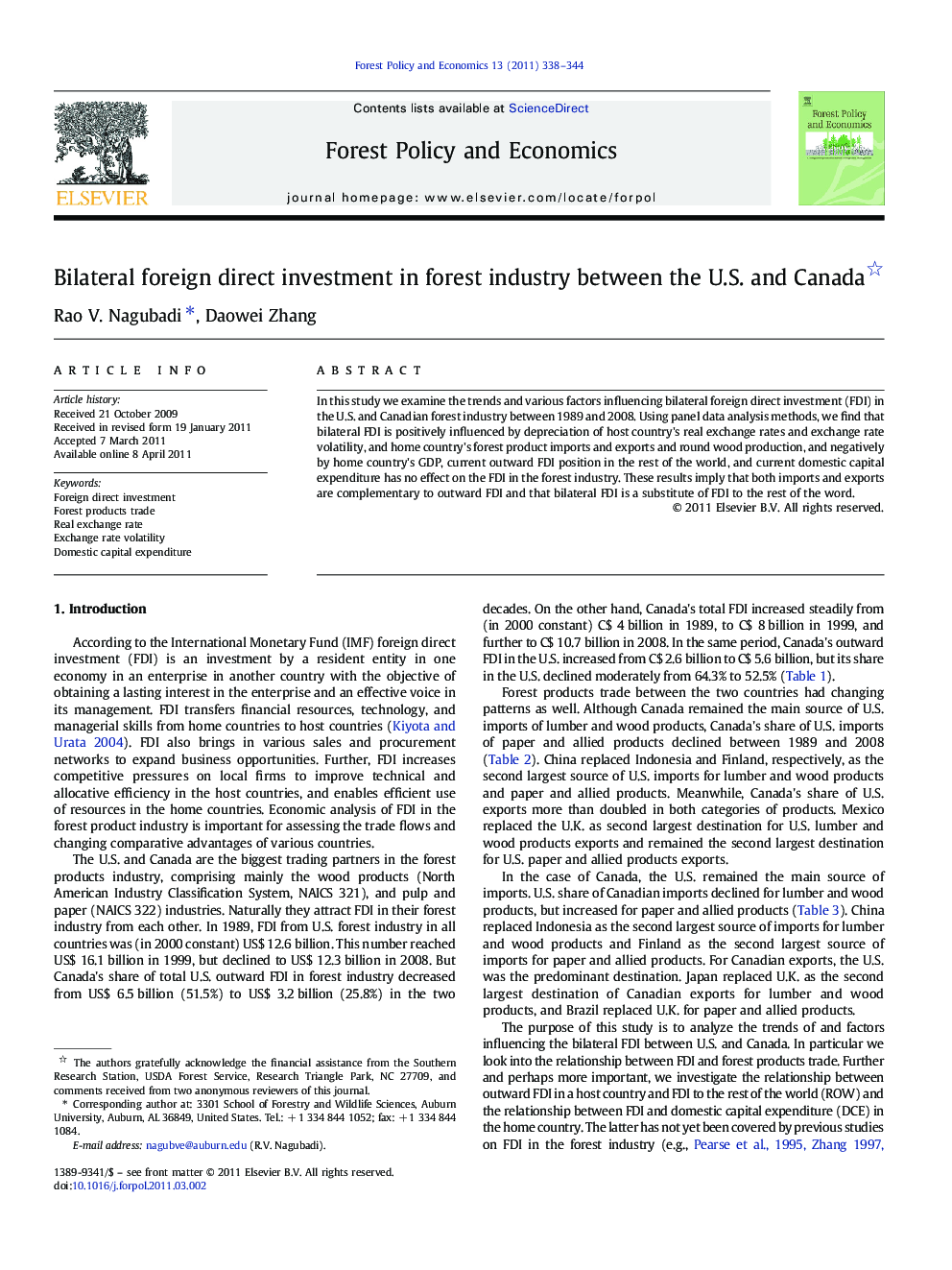| Article ID | Journal | Published Year | Pages | File Type |
|---|---|---|---|---|
| 91518 | Forest Policy and Economics | 2011 | 7 Pages |
In this study we examine the trends and various factors influencing bilateral foreign direct investment (FDI) in the U.S. and Canadian forest industry between 1989 and 2008. Using panel data analysis methods, we find that bilateral FDI is positively influenced by depreciation of host country's real exchange rates and exchange rate volatility, and home country's forest product imports and exports and round wood production, and negatively by home country's GDP, current outward FDI position in the rest of the world, and current domestic capital expenditure has no effect on the FDI in the forest industry. These results imply that both imports and exports are complementary to outward FDI and that bilateral FDI is a substitute of FDI to the rest of the word.
Research Highlights► We examine trends in bilateral foreign direct investment (FDI) between the U.S. and Canada. ► Bilateral FDI and trade are found to be complimentary. ► Host country‘s exchange rate and its volatility, and roundwood production have positive relationship with bilateral FDI. ► GDP and outward FDI in the rest of the world have a negative impact on bilateral FDI.
